The Jeep Wrangler takes regular unleaded gasoline. The Jeep Wrangler is a popular off-road vehicle known for its ruggedness, versatility, and adventurous spirit.
Whether you’re cruising through urban streets or tackling challenging terrains, it’s important to know what kind of fuel your Wrangler needs. The answer is simple: regular unleaded gasoline. This means you won’t have to worry about seeking out any specialized or premium fuel options.
Just fill up your tank with regular unleaded gas, and your Wrangler will be ready to go. We will delve deeper into the importance of using regular unleaded gas for your Jeep Wrangler and explain why it’s the best fuel choice for this iconic vehicle. So, let’s get rolling!
What Gas Does Jeep Wrangler Take
Jeep Wranglers run on regular unleaded gasoline.
If you’re a proud owner of a Jeep Wrangler or considering getting one, it’s essential to know what type of gas it requires. The fuel you use can impact your Jeep’s overall performance and longevity. In this section, we will explore the different aspects of the gas suitable for your Jeep Wrangler.
Gas Recommendations For Jeep Wrangler:
- Regular Unleaded Gasoline:
- Jeep Wranglers generally run well on regular unleaded gasoline with an octane rating of 87 or above.
- This type of gasoline is widely available and tends to be more cost-effective compared to premium options.
- Ethanol Blend:
- Many Jeep Wrangler models can use gasoline blends that contain up to 10% ethanol (E10).
- Ethanol blend fuels are a common choice in many areas and help reduce greenhouse gas emissions.
- Premium Gasoline (If Recommended):
- While most Jeep Wranglers only require regular unleaded gasoline, some higher-performance models or modified versions might recommend using premium gasoline.
- If your Jeep’s manual specifies the use of premium gas, it’s essential to adhere to these guidelines for optimal performance.
What Gas To Avoid:
- Diesel Fuel:
- Unless you have a diesel-powered Jeep Wrangler, it is crucial to avoid using diesel fuel.
- Filling your Jeep’s tank with diesel can cause severe damage to the engine and other components.
- Octane lower than the recommended rating:
- Using gasoline with an octane rating lower than the minimum recommended by the manufacturer can lead to engine knocking and decreased performance.
- Always refer to your Jeep Wrangler’s manual and use fuels with the recommended octane rating to ensure proper engine function.
- Lead or Leaded Gasoline:
- Lead was once a common additive in gasoline, but it has been phased out due to harmful effects on the environment and human health.
- It is essential to avoid using leaded gasoline in your Jeep, as it can damage the engine and emission control systems.
Understanding the gas requirements for your Jeep Wrangler ensures you can choose the right fuel for optimal performance and longevity. Always refer to your vehicle’s manual and follow the manufacturer’s recommendations regarding gasoline octane ratings and fuel types. By doing so, you can enjoy a smooth ride while maintaining the health of your Jeep’s engine.
Understanding Fuel Requirements For Your Wrangler
The Jeep Wrangler requires regular gasoline for optimal fuel performance. Understanding the fuel requirements is crucial for maintaining the smooth operation of your Wrangler.
If you’re a proud owner of a Jeep Wrangler, there may come a time when you wonder, “What gas does Jeep Wrangler take? ” It’s crucial to understand the fuel requirements for your Wrangler to ensure optimal performance and to avoid any potential issues.
Whether you’re a Wrangler newbie or a seasoned owner, this guide will provide you with all the information you need.
Octane Rating: What You Need To Know
When it comes to choosing the right fuel for your Jeep Wrangler, the octane rating plays a crucial role. The octane rating refers to the fuel’s ability to resist knocking or pinging during combustion. Jeep Wranglers typically require fuel with an octane rating of 87, also known as regular unleaded gasoline.
However, it’s essential to refer to your specific Wrangler’s owner’s manual for accurate information regarding the octane rating.
Benefits Of Regular Unleaded Gasoline
Opting for the recommended regular unleaded gasoline offers several benefits for your Wrangler. Here are a few advantages to consider:
- Cost-effective: Regular unleaded gasoline is typically the most affordable fuel option, saving you money at the pump.
- Widely available: Regular unleaded gasoline is readily available at most gas stations, ensuring convenience wherever you go.
- Compatibility: Most Jeep Wranglers are designed to run efficiently on regular unleaded gasoline, making it compatible with your vehicle’s engine.
Do’s And Don’ts: Fuel Tips For Your Wrangler
To keep your Wrangler running smoothly and efficiently, here are some essential fuel tips to follow:
- Do use the recommended octane rating mentioned in your owner’s manual. Using a higher octane rating than necessary will not enhance your vehicle’s performance.
- Don’t use lower octane fuel than recommended. Using a lower octane rating may lead to engine knocking and decreased performance.
- Do consider fuel additives if you experience issues with fuel quality or performance. However, always consult your vehicle’s manufacturer or a certified mechanic before using any additives.
Wrapping Up
Understanding the fuel requirements for your Jeep Wrangler is vital for keeping your vehicle running at its best. Remember to check your owner’s manual for the specific octane rating required, typically 87 for most Wranglers. By using regular unleaded gasoline and following the do’s and don’ts, you can ensure optimal performance and avoid potential issues.
So, fill up your tank with confidence and hit the road in your reliable Jeep Wrangler!
Regular Or Premium – What Octane Does My Jeep Need?
Wondering what type of gas your Jeep Wrangler needs? Whether you have a regular or premium option, the octane rating for your Jeep will depend on the specific model and engine, so it’s crucial to consult your owner’s manual or manufacturer’s recommendations for the right fuel.
Whether you’re a proud Jeep Wrangler owner or considering purchasing one, you might have found yourself wondering what type of gas this rugged vehicle requires. The Jeep Wrangler is known for its off-road capabilities and adventurous spirit, but when it comes to fuel, does it have any specific requirements?
In this section, we’ll explore whether your Jeep Wrangler needs regular or premium gasoline and the octane rating that suits it best.
Does Jeep Wrangler Need Regular Or Premium Gas?
Here are the key points to consider when determining the type of gas your Jeep Wrangler requires:
- Regular gasoline: Most Jeep Wrangler models are designed to run on regular unleaded gasoline with an octane rating of 87. This is the standard fuel you’ll find at most fueling stations, and it provides the required performance and efficiency for everyday driving.
- Octane rating: The octane rating measures a fuel’s resistance to knocking or pinging during combustion. Knocking can potentially cause engine damage, so it’s essential to choose the right octane rating for your vehicle. While most Jeep Wrangler models work well with regular 87 octane fuel, some higher-performance versions may recommend premium gasoline with a higher octane rating.
- Higher octane requirements: If you own a Jeep Wrangler model with enhanced performance features like a turbocharged engine, the manufacturer may recommend using premium gasoline with an octane rating of 91 or higher. This higher octane fuel helps prevent knocking and provides optimal performance for these models.
- Manufacturer’s recommendations: To be certain about the octane requirements for your specific Jeep Wrangler model, always refer to the owner’s manual or contact the manufacturer directly. They can provide accurate and up-to-date information on the recommended fuel type and octane rating for your vehicle.
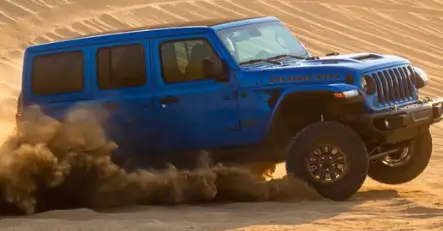
Remember, using a higher octane fuel than what is required for your Jeep Wrangler does not necessarily improve performance. However, using a lower octane fuel than recommended can potentially harm your engine. By following the manufacturer’s guidelines, you can ensure smooth operation and longevity for your vehicle.
Most Jeep Wrangler models run on regular unleaded gasoline with an octane rating of 87, which is commonly available at fueling stations. However, it’s crucial to consider any higher octane requirements if you own a performance-enhanced version of the Jeep Wrangler.
Always consult the owner’s manual or the manufacturer for the specific fuel recommendations to maintain the optimum performance of your vehicle. So, next time you hit the road in your Jeep Wrangler, you can be confident that you’re fueling it with the right type of gas.
Unleaded Gasoline – The Only Fuel Type Recommended
Jeep Wrangler runs on unleaded gasoline, making it the recommended fuel type for optimal performance. Enjoy a smooth ride with this fuel choice.
Jeep Wrangler is a reliable and versatile vehicle, but it is important to understand what type of gas it requires to ensure optimal performance. When it comes to fueling up your Jeep Wrangler, the only fuel type recommended is unleaded gasoline.
Here’s why:
Unleaded Gasoline: The Basics
- Unleaded gasoline is the standard fuel type for most vehicles, including the Jeep Wrangler. It contains no lead additives, making it environmentally friendly and reducing harmful emissions.
- Using unleaded gasoline helps protect the engine components from premature wear and tear, ensuring the longevity of your Jeep Wrangler.
- Unleaded gasoline also increases fuel efficiency, allowing you to get the most out of each tank.
Benefits Of Using Unleaded Gasoline
- Improved Engine Performance: Unleaded gasoline is formulated to provide cleaner combustion, which enhances the overall performance of your Jeep Wrangler’s engine.
- Easier Starting: Unleaded gasoline minimizes the risk of engine knocking and helps your vehicle start smoothly, even in cold weather conditions.
- Reduced Maintenance Costs: By using the recommended unleaded gasoline, you can avoid costly repairs and maintenance that may arise from using the wrong fuel type.
- Widely Available: Unleaded gasoline is readily accessible at gas stations across the country, ensuring that you can easily find the fuel your Jeep Wrangler needs.
Important Considerations
- Octane Rating: When fueling your Jeep Wrangler with unleaded gasoline, it is crucial to select the appropriate octane rating recommended by the manufacturer. Refer to the owner’s manual or check with your dealer to determine the correct octane level.
- Ethanol Content: While most gas stations offer unleaded gasoline with varying levels of ethanol, it is advisable to use fuel with lower ethanol content or choose ethanol-free options. Excessive ethanol levels can potentially damage the engine.
Using the recommended unleaded gasoline for your Jeep Wrangler is essential to maintain its performance, fuel efficiency, and overall durability. Remember to always follow the manufacturer’s guidelines and consult your dealer or owner’s manual for any specific fuel requirements. Fuel up with unleaded gasoline and enjoy your adventures with confidence in your Wrangler’s performance.
Why Putting Diesel In A Wrangler Can Cause Big Problems
Putting diesel in a Wrangler can lead to major issues as Jeeps require gasoline. Using the wrong fuel can damage the engine, leading to costly repairs. It is crucial to fill up your Jeep Wrangler with the correct type of gas to avoid any complications.
The Jeep Wrangler is a popular SUV known for its off-road capabilities. If you’re a proud owner or thinking about getting one, it’s important to know what type of gas your Jeep can take. In this blog post, we’ll focus on the specific gas requirements for a Jeep Wrangler and why putting diesel in it can lead to significant problems.
Gasoline: The Fuel For Jeep Wrangler
Here’s what you need to know about the type of gas your Jeep Wrangler requires:
- Regular gas: The ideal gas for a Jeep Wrangler is regular unleaded gasoline.
- Octane rating: Look for gasoline with an octane rating of 87. This is the recommended rating for optimal performance.
- Ethanol content: Jeep Wranglers can safely handle gasoline with up to a 10% ethanol (E10) blend. However, it’s best to avoid gasoline with higher ethanol content.
The Consequences Of Putting Diesel In A Wrangler
Putting diesel in a Jeep Wrangler can have serious repercussions. Here’s why:
- Fuel system damage: Diesel fuel has a different composition than gasoline, which means it won’t burn properly in the Wrangler’s engine. This mismatch can cause damage to the fuel system, including the fuel injectors, fuel pump, and filters.
- Engine performance issues: Diesel fuel in a gasoline engine can lead to poor performance, rough idling, engine stalling, and difficulty starting the vehicle.
- Costly repairs: Repairing the damage caused by putting diesel in a Wrangler can be expensive. In addition to the fuel system repairs, you might need to flush the entire fuel system to remove any traces of diesel.
To ensure smooth and trouble-free performance, it’s crucial to use the right gasoline for your Jeep Wrangler. Stick to regular unleaded gasoline with an octane rating of 87 and avoid putting diesel in the tank. By following these guidelines, you’ll maintain the longevity of your Wrangler and avoid unnecessary repair costs.
Checking The Manual To Find Your Jeep’s Fuel Specs
To find the fuel specifications for your Jeep Wrangler, consult the owner’s manual. It provides the necessary information on the type of gas your vehicle requires, ensuring optimal performance.
If you have just purchased a Jeep Wrangler or are considering buying one, knowing what type of gasoline to use is essential for optimal performance and longevity. Jeep Wranglers have specific fuel requirements that should not be overlooked. To find out the exact gas your Jeep Wrangler takes, the best place to start is by checking the manual.
Here’s a step-by-step guide to help you:
Step 1: Locate Your Owner’s Manual
- Your owner’s manual contains detailed information about your Jeep Wrangler, including the recommended fuel type.
- Keep in mind that fuel specifications can vary depending on the model year and trim level. Therefore, it’s crucial to refer to the manual corresponding to your specific vehicle.
Step 2: Identify The Fuel Specifications Section
- In the owner’s manual, look for the section that provides detailed specifications about fuel requirements.
- This section is typically labeled as “Fuel Requirements” or something similar. You can use the table of contents or index to quickly navigate to the desired page.
Step 3: Note The Recommended Octane Rating
- The fuel specifications section will specify the recommended octane rating for your Jeep Wrangler.
- Octane ratings indicate the gasoline’s ability to resist knocking or pinging during combustion. It is crucial to use the proper octane rating to avoid performance issues and potential engine damage.
Step 4: Understand The Fuel Type
- Alongside the octane rating, the manual will specify the recommended fuel type for your Jeep Wrangler.
- Jeeps Wranglers typically require regular unleaded gasoline. However, it’s important to double-check the manual to ensure your model does not have any specific fuel requirements.
Step 5: Follow Any Additional Guidelines
- The manual may provide additional guidelines related to fuel additives or different fuel specifications under specific circumstances, such as towing or off-roading.
- Pay close attention to these instructions to ensure you are using the correct fuel for your specific driving needs.
Step 6: Seek Professional Advice If Uncertain
- If you are still unsure about the fuel type your Jeep Wrangler takes after consulting the owner’s manual, it is always wise to seek advice from a trusted Jeep dealership or an experienced mechanic.
- They can provide you with accurate information and address any specific concerns or questions you may have.
Remember, using the proper fuel recommended by the manufacturer is essential for maintaining the performance, efficiency, and longevity of your Jeep Wrangler. By following the manual’s guidelines, you can ensure that you are using the correct gas and enjoying your off-road adventures without any hiccups.
The Importance Of Using The Right Fuel Grade
The Jeep Wrangler requires the right fuel grade to ensure optimal performance and efficiency. Using the correct gas type helps maintain the vehicle’s engine health and prolong its lifespan, making it important for Wrangler owners to understand what fuel to use in their vehicle.
When it comes to fueling up your Jeep Wrangler, using the right fuel grade is crucial for optimal performance and longevity. The type of gas you choose can affect not only the engine’s performance but also its overall efficiency. Here’s why using the correct fuel grade is so important:
Ensures Proper Combustion
Using the recommended fuel grade ensures proper combustion within the engine. Each vehicle, including the Jeep Wrangler, is designed to work with a specific octane rating. The octane rating signifies the fuel’s ability to resist knocking or pinging during combustion.
By using the correct octane fuel, you’ll ensure that fuel burns smoothly and efficiently, maximizing power output and reducing engine stress.
Improves Fuel Efficiency
Using the right fuel grade can also improve your Wrangler’s fuel efficiency. A higher-octane fuel typically burns cleaner and more completely, allowing your engine to extract more energy from each drop of fuel. This can lead to better gas mileage and fewer trips to the pump.
Prevents Engine Damage
Using a lower-octane fuel than what is recommended can potentially cause engine damage. When the fuel’s octane rating is too low, it can lead to pre-ignition or engine knocking. This phenomenon occurs when the air/fuel mixture ignites prematurely, causing pressure waves that can damage engine components over time.
By using the proper fuel grade, you’ll help protect your engine from unnecessary wear and tear.
Maintains Warranty Coverage
Using the recommended fuel grade is also crucial in preserving your Jeep Wrangler’s warranty coverage. Automakers often specify the appropriate fuel octane rating for their vehicles to ensure proper performance and durability. By deviating from the recommended fuel grade, you may risk voiding your warranty coverage in the event of engine damage or related issues.
Avoids Potential Performance Issues
Using the wrong fuel grade can lead to performance issues in your Jeep Wrangler. When the octane rating is too low or too high, it can cause engine misfires, reduced power output, poor acceleration, and decreased overall driving performance. To fully enjoy the capabilities of your Wrangler, always use the fuel grade recommended by the manufacturer.
Using the correct fuel grade for your Jeep Wrangler is essential for maintaining its performance, fuel efficiency, and engine health. By following the manufacturer’s recommendations, you can ensure smooth combustion, prevent potential damage, and enjoy the full potential of your Wrangler both on and off the road.
Saving Money At The Pump With Your Wrangler
Discover how to save money at the pump with your Jeep Wrangler by understanding the type of gas it requires. Maximize fuel efficiency and reduce costs with the right choice.
If you own a Jeep Wrangler, you’re probably no stranger to the thrill and adventure it brings. From conquering off-road trails to cruising down the highway with the wind in your hair, the Wrangler is a versatile vehicle built for exploration.
But have you ever wondered what type of gas your Jeep Wrangler takes, and how you can save money at the pump? In this section, we will dive into these questions and provide you with some helpful tips to stretch your dollars further.
Gasoline Octane Ratings: What You Should Know
- Regular octane fuel: Jeep Wranglers are designed to run on regular octane fuel with an octane rating of 87. Using fuel with a higher octane rating is not necessary and will not provide any additional benefits.
- Understanding octane ratings: Octane rating is a measure of a fuel’s ability to resist engine knock. Higher octane fuels are commonly found in high-performance vehicles and are not required for everyday use in your Jeep Wrangler.
Fuel Efficiency: Maximizing Your Miles Per Gallon
- Proper tire inflation: Maintaining proper tire pressure can significantly impact your Wrangler’s fuel efficiency. Underinflated tires create more rolling resistance, resulting in lower MPG. Be sure to check your tire pressure regularly and inflate them to the recommended levels.
- Smooth driving habits: Aggressive acceleration and braking can decrease your fuel efficiency. Adopting smoother driving habits, such as gradual acceleration and coasting to a stop, can help you save money by maximizing your miles per gallon.
- Remove unnecessary weight: The heavier your Jeep Wrangler, the more fuel it needs to propel. Remove any extra cargo or accessories that you don’t need for your trip, reducing the weight and improving fuel efficiency.
- Regular maintenance: Keeping up with routine maintenance, such as oil changes, air filter replacements, and spark plug inspections, ensures that your Wrangler is running in top shape. A well-maintained engine operates more efficiently, resulting in better fuel economy.
Fuel-saving Technologies: Making The Most Out Of Every Drop
- Engine start-stop technology: Some newer Jeep Wrangler models are equipped with engine start-stop technology. This feature automatically shuts off the engine when the vehicle comes to a stop and restarts it again when the accelerator is pressed, saving fuel during idle time.
- Hybrid options: Jeep has recently introduced hybrid versions of the Wrangler, offering improved fuel economy through a combination of a traditional internal combustion engine and an electric motor. If fuel efficiency is a top priority, consider exploring these hybrid options.
Wrangler-specific Tips: Optimizing Your Fuel Consumption
- Soft-top vs. Hardtop: If you have the option, opt for a soft-top Wrangler instead of a hardtop. Soft-tops are generally lighter, resulting in better fuel efficiency.
- Proper gear selection: When driving your Wrangler, select the appropriate gear for your current speed and terrain. Running in a higher gear at low speeds can strain the engine, leading to increased fuel consumption.
By following these guidelines and practicing fuel-efficient driving habits, you can save money at the pump and get the most out of every drop of fuel in your Jeep Wrangler. So go ahead, hit the road, and enjoy the thrilling adventures that await you, all while keeping your wallet happy.
How Fuel Efficiency Varies Across Wrangler Models
Jeep Wrangler models have varying fuel efficiency rates. The type of gas that a Jeep Wrangler takes depends on the particular model.
The fuel efficiency of a vehicle is an important consideration for many car buyers today, including those interested in the iconic Jeep Wrangler. When it comes to the gas options available for the Jeep Wrangler, understanding the fuel efficiency is crucial.
In this section, we will explore how fuel efficiency varies across different Wrangler models, providing you with the information you need to make an informed decision.
Fuel Efficiency Factors To Consider
When assessing the fuel efficiency of Jeep Wrangler models, several factors come into play. Here are some key points to consider:
- Engine Type: The type of engine in a Wrangler model can significantly impact its fuel efficiency. Jeep offers different engine options, including gasoline and diesel, each with its own pros and cons.
- Transmission: The choice of transmission can also affect fuel efficiency. Wranglers are available with both manual and automatic transmissions, and the gear ratios can impact how efficiently the vehicle utilizes fuel.
- Weight and Size: The weight and size of a vehicle can influence fuel consumption. Generally, larger and heavier Jeep Wranglers may have lower fuel efficiency compared to smaller models.
- Aerodynamics: The design and aerodynamics of a Wrangler can affect how air flows around the vehicle. Models with better aerodynamics tend to have improved fuel efficiency.
- Driving Habits: The fuel efficiency of any vehicle can be affected by driving habits, such as speed, acceleration, and braking. Gentle driving techniques can help maximize fuel efficiency.
Wrangler Models And Fuel Efficiency Ratings
Jeep Wrangler models come in various trims, each with its own fuel efficiency ratings. Here is an overview of the fuel efficiency ratings for some popular Wrangler models:
- Wrangler Sport: The base trim Wrangler Sport typically achieves a fuel efficiency rating of around 17 miles per gallon (MPG) in the city and 25 MPG on the highway.
- Wrangler Sahara: The Sahara trim offers slightly improved fuel efficiency, with ratings averaging around 18 MPG in the city and 23 MPG on the highway.
- Wrangler Rubicon: The Rubicon trim, known for its off-road capabilities, has a similar fuel efficiency rating to the Sahara trim, averaging around 18 MPG in the city and 23 MPG on the highway.
- Wrangler Unlimited: The Wrangler Unlimited model, with its four-door design, can achieve slightly lower fuel efficiency compared to the two-door Wranglers, with ratings averaging around 17 MPG in the city and 24 MPG on the highway.
Other Considerations
While fuel efficiency is important, it is essential to consider other factors when choosing a Jeep Wrangler model. Features, capabilities, and overall performance should also play a significant role in your decision-making process. It is recommended to test drive different models and discuss your requirements with a knowledgeable dealer to find the perfect balance between fuel efficiency and other desired attributes in a Wrangler.
Making An Informed Decision
Understanding how fuel efficiency varies across different Jeep Wrangler models equips you with the knowledge necessary to make an informed decision. Factors such as engine type, transmission, weight and size, aerodynamics, and driving habits all contribute to fuel efficiency. By considering these factors and the specific fuel efficiency ratings of various Wrangler models, you can choose the one that best suits your needs and preferences.
So, take your time, do your research, and get ready for your exciting journey with a fuel-efficient Jeep Wrangler.
Avoiding Lower-quality Gas Brands And Stations
The Jeep Wrangler requires high-quality gas for optimal performance. It is important to avoid lower-quality gas brands and stations to ensure the engine runs smoothly and efficiently, maximizing the vehicle’s potential. Choose the right gas to keep your Jeep Wrangler running at its best.
When it comes to fueling up your Jeep Wrangler, it’s important to know which gas brands and stations to choose in order to keep your vehicle running smoothly and efficiently. While there are many options available, not all gas brands and stations provide the same level of quality.
To avoid potential issues down the road, follow these tips to steer clear of lower-quality options:
Factors To Consider When Choosing A Gas Brand Or Station:
- Reputation: Research the reputation of different gas brands and stations in your area. Look for brands and stations with a good track record and positive customer reviews.
- Top-Tier Gasoline: Opt for gas brands that provide top-tier gasoline. This type of fuel contains additional additives to help keep your engine clean and running efficiently. Examples of top-tier gas brands include Shell, Chevron, and Exxon.
- Price: While it’s tempting to go for the cheapest option, remember that quality often comes at a price. Avoid extremely low-priced gas, as it may be of lower quality and could potentially harm your engine.
- Location: Choose gas stations located in well-populated areas or along major highways. These stations tend to have a higher turnover of fuel, reducing the chances of getting stale or contaminated gasoline.
- Cleanliness: Take note of the cleanliness and overall maintenance of the gas station. A well-maintained station is more likely to prioritize the quality of their fuel.
- Certification: Look for gas stations that have received certifications or awards for their fuel quality. These certifications can provide reassurance that the gas you’re putting into your vehicle meets industry standards.
Signs Of Lower-quality Gas Brands And Stations:
- Sudden Drop in Mileage: If you notice a significant decrease in fuel efficiency after filling up at a particular gas station, it could be a sign of lower-quality fuel.
- Engine Knocking or Pinging: Lower-quality gas can result in engine knocking or pinging noises. If you experience these sounds, it may be a sign of fuel-related issues.
- Poor Vehicle Performance: Lower-quality fuel can negatively impact your Jeep Wrangler’s performance. Pay attention to any changes in acceleration, power, or overall smoothness of your vehicle after refueling.
- Fuel Filter Problems: Using poor-quality gasoline can clog up your fuel filter, leading to performance issues and potentially costly repairs.
Remember, choosing the right gas brand and station for your Jeep Wrangler is essential for maintaining its performance and longevity. By avoiding lower-quality options and being mindful of the factors mentioned above, you can ensure that your vehicle runs smoothly mile after mile.
How To Improve Your Jeep’s Mileage Through Maintenance
To improve your Jeep’s mileage through maintenance, it’s crucial to use the fuel that is recommended for your specific Jeep Wrangler model. Choosing the right gas can optimize your vehicle’s performance, resulting in improved fuel efficiency and overall mileage.
Jeep Wranglers are renowned for their off-road capabilities and ruggedness. Whether you’re a Jeep enthusiast or a new owner, understanding the type of gas your Jeep Wrangler takes is crucial. Not only does it contribute to the performance of your vehicle, but it can also affect your mileage.
In this blog post, we will guide you through the different fuel options for a Jeep Wrangler and how you can enhance its mileage through proper maintenance.
The Gas Options For A Jeep Wrangler:
- Regular Unleaded Gasoline: This is the most common and widely available fuel option for Jeep Wranglers. Regular unleaded gasoline typically has an octane rating of 87 and is suitable for most Jeep models.
- E85 Flex Fuel: Some newer Jeep Wrangler models are compatible with E85 flex fuel. E85 is a blend of 85% ethanol and 15% gasoline, which can offer potential cost savings and reduced emissions. However, it’s essential to check your vehicle’s manual to determine if it is designed for E85 use.
- Diesel Fuel: The Jeep Wrangler is also available in a diesel variant, which requires diesel fuel. Diesel engines provide excellent torque and fuel efficiency, making them an attractive option for those who frequently tow or off-road.
Maintenance Tips To Improve Your Jeep’s Mileage:
Proper maintenance plays a significant role in optimizing your Jeep Wrangler’s fuel efficiency. By following these maintenance tips, you can enhance your vehicle’s mileage:
- Regular Oil Changes: Ensure that you change the engine oil and filter as recommended by the manufacturer. Fresh oil and a clean filter help reduce friction and improve engine efficiency.
- Check Tire Pressure: Maintaining proper tire pressure is crucial for fuel efficiency. Underinflated tires increase rolling resistance, resulting in decreased mileage. Refer to your owner’s manual for the recommended tire pressure and check it regularly.
- Air Filter Replacement: A clean air filter allows for better airflow, which improves the engine’s performance and fuel efficiency. Check your air filter at regular intervals and replace it if it’s dirty or clogged.
- Fuel System Cleaning: Over time, deposits can accumulate in the fuel system, affecting fuel flow and combustion. Consider periodic fuel system cleaning to ensure optimal performance.
- Proper Wheel Alignment: Misaligned wheels can cause increased rolling resistance, leading to decreased fuel efficiency. Have your wheel alignment checked and adjusted if necessary.
- Regular Spark Plug Checks and Replacement: Faulty or worn-out spark plugs can negatively impact fuel combustion, resulting in reduced mileage. Inspect your spark plugs regularly and replace them as needed.
- Lighten the Load: Remove any unnecessary weight from your Jeep. Carrying extra weight places increased demand on the engine, ultimately affecting fuel efficiency.
By adhering to these maintenance practices, you can ensure that your Jeep Wrangler continues to perform at its best and delivers better mileage.
Remember, taking care of your Jeep’s fuel needs and maintaining it properly can go a long way in maximizing your driving experience and getting the most out of your adventures. Happy trails!
Frequently Asked Questions For What Gas Does Jeep Wrangler Take
Does Jeep Wrangler Require Premium Gas?
No, the Jeep Wrangler does not require premium gas. It runs perfectly fine on regular unleaded gasoline.
Does a Jeep Wrangler Take 87 Or 91?
The Jeep Wrangler takes 87 octane fuel.
What Gas Does A 2015 Jeep Wrangler Take?
The 2015 Jeep Wrangler takes regular unleaded gasoline.
Does Wrangler 392 Require Premium Fuel?
Yes, the Wrangler 392 does require premium fuel for optimal performance.
Conclusion
The Jeep Wrangler is designed to run on regular unleaded gasoline, making it an accessible and cost-effective option for owners. By understanding the specific gas requirement, you can ensure optimal performance and fuel efficiency for your Jeep. So, the next time you fill up your tank, remember to choose regular unleaded gas for your Jeep Wrangler and enjoy its impressive capabilities on and off the road.
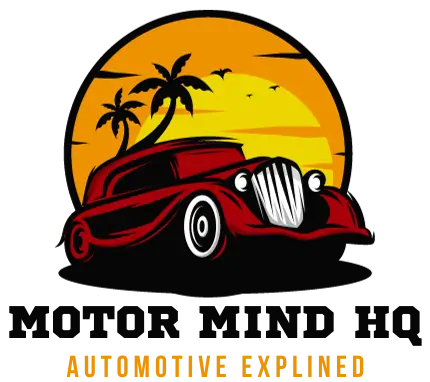
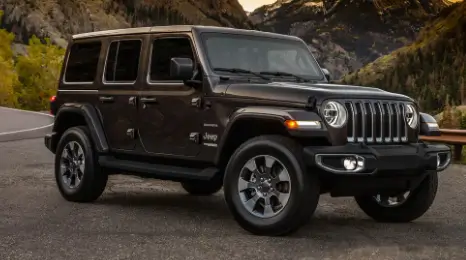
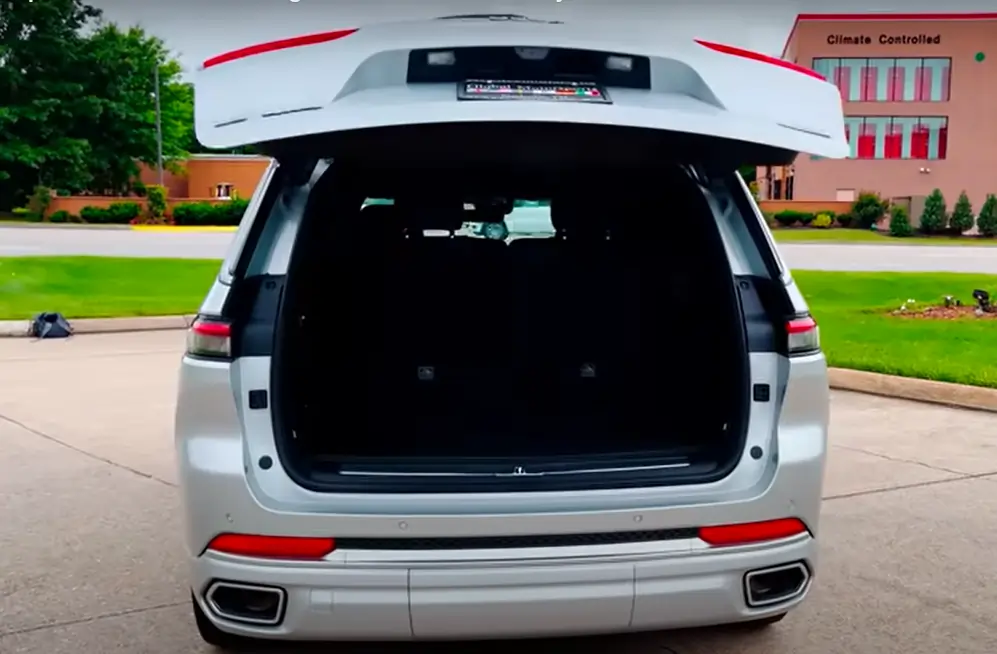
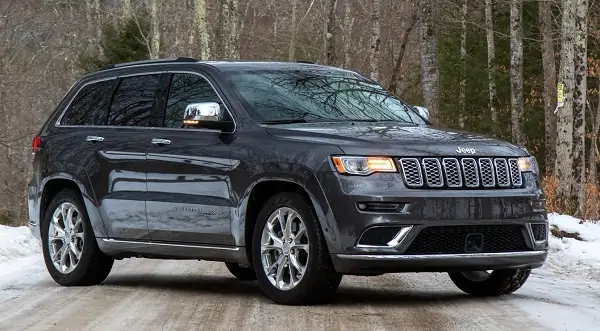




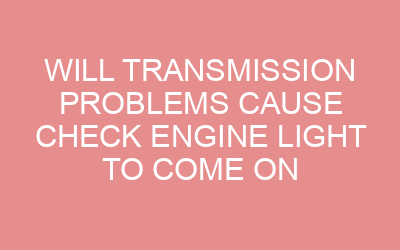

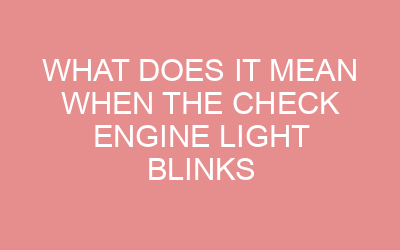


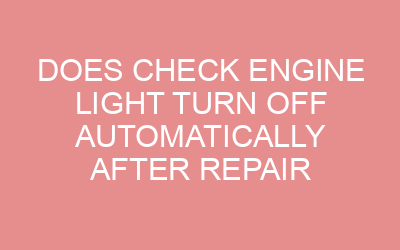
Leave a Reply